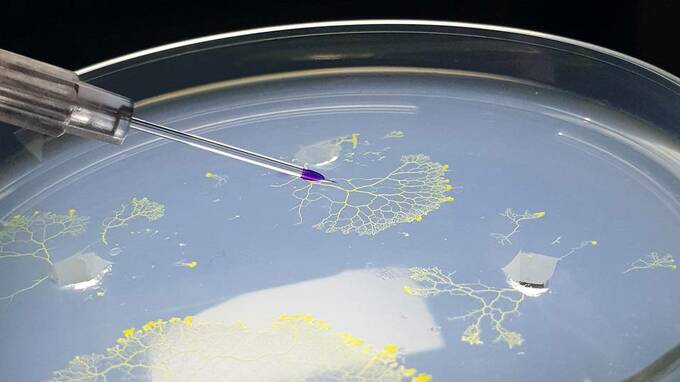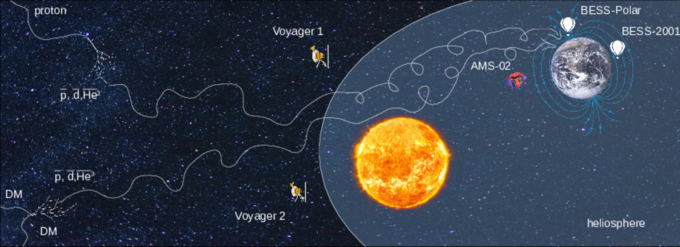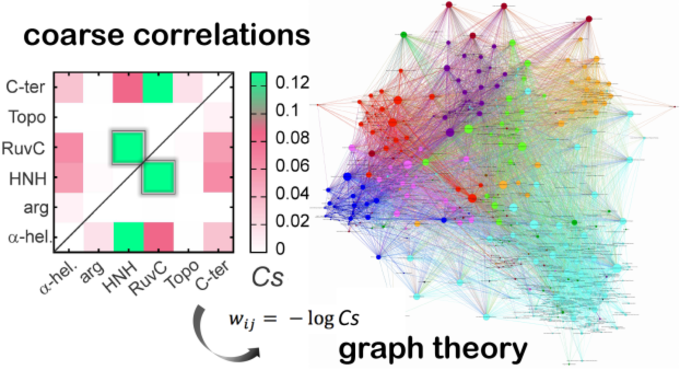ERC supports pioneering research projects
European Research Council awards three starting grants
2020-09-25 – News from the Physics Department

To date, researchers at TUM have received a total of 135 of the renowned grants from the European Research Council (ERC). These are awarded in different categories every year. The Physics Department of TUM has been successful with 34 ERC grants so far.
Starting grants aim to facilitate the implementation of new research approaches by excellent young scientists. They are endowed with up to two million euros.
Prof. Dr. Karen Alim
Fluid flows through tubular networks like our bloodstream are vital building blocks of life – from simple slime molds to mammals including humans. They not only transport substances and signals but can also dynamically adapt their network architecture to new requirements. These kinds of changes are often memorized in the network for over long periods of time.
In the “FlowMem” project, Prof. Karen Alim aims to identify the physical principles behind the dynamic memory of such changes in network architectures and how they can be controlled. Knowledge of these physical mechanisms provides the basis for new approaches to topics ranging from the treatment of vascular diseases and tumor development to the development of self-optimizing porous materials in fuel cells.
Prof. Karen Alim is professor for Biological Physics and Morphogenesis at the Physics Department of TUM and will remain Max Planck group leader at the Max Planck Institute for Dynamics and Self-Organization in Göttingen until 2022.
Dr. Francesca Bellini
Physicists currently assume that dark matter in our universe consists of WIMPs, weakly interacting massive particles. A clear sign of the existence of WIMPs would be the observation of anti-nuclei in cosmic rays, which could form after the annihilation of two dark matter particles. However, there is another production possibility for anti-nuclei: high-energy collisions of cosmic particles, especially protons, with the interstellar medium. Therefore, it is currently unclear whether the light anti-nuclei observed by the AMS-02 experiment aboard the ISS are really resulting from dark matter.
In the ALICE experiment at the Large Hadron Collider at CERN in Geneva, physicist Francesca Bellini will systematically investigate the production of rare anti-helium in collisions of protons and lead nuclei. In this way, Francesca Bellini pursues in her ERC grant project CosmicAntiNuclei to predict the anti-helium background to be expected for ongoing and next generation experiments. In the future, it thus will be possible to distinguish if anti-nuclei in space come from dark matter annihilation or cosmic ray background.
Francesca Bellini has been analyzing data obtained with ALICE for more than ten years, most recently as a Marie Curie Fellow at CERN. The ERC team lead by Dr. Francesca Bellini will be hosted by the research group for Dense and Strange Hadronic Matter of Prof. Laura Fabbietti at the TUM Department of Physics.
Contact
- Dr. Francesca Bellini (currently at CERN), francesca.bellini@cern.ch
- Prof. Dr. Laura Fabbietti (TUM), laura.fabbietti@ph.tum.de
- Research group Fabbietti
Dr. Giulia Palermo
Allostery is a fundamental property of proteins in which smaller molecules change the conformation of the protein and thus influence the active center. In her project “Allosteric-CRISPR”, Dr. Giulia Palermo will pay particular attention to the CRISPR-Cas9 system, which is the centerpiece of a recent genome editing revolution and whose underlying signal transmission is still poorly understood.
With a broad repertoire of methods, Giulia Palermo aims to investigate the allosteric communication network and the role of allostery in the dynamics of CRISPR-Cas9 and its implication for genome editing. The research methodology which will be developed is intended to advance future research on large nucleoprotein complexes and contribute to the development of improved genome processing tools.
Dr. Giulia Palermo will conduct the research in collaboration with the “Biomolecular Dynamics” group of Prof. Martin Zacharias in the Physics Department at TUM.
Contact
- Dr. Giulia Palermo (currently at University of California Riverside), giulia.palermo@ucr.edu
- Prof. Dr. Martin Zacharias (TUM), martin.zacharias@mytum.de
- Research group Zacharias
More information
The European Research Council (ERC) will fund four more research projects at TUM. Learn more about the others in TUM’s press release.

